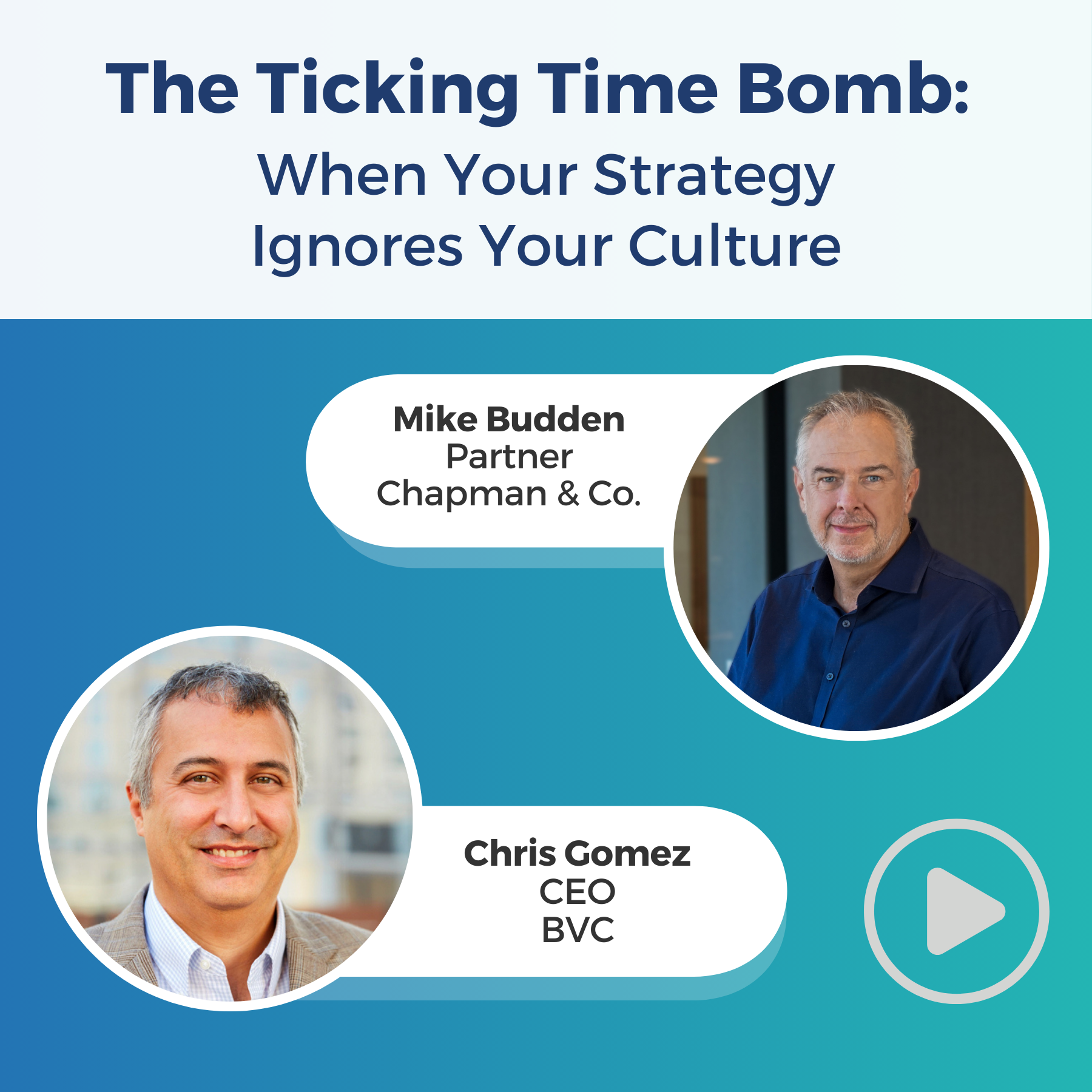Strategy Without Culture Is A Ticking Time Bomb.
BLOG RECAP
Presented by Chris Gomez, BVC, CEO, and Mike Budden, Chapman & Co., Partner.
Our conversation was inspired by the recent MIT Sloan Management Review article:
"How to Strategize in an Out-of-Control World." - March, 2025
Strategy Without Culture Is A Ticking Time Bomb.
Between 2020 and 2024, public companies experienced a 43% profitability swing due to forces outside their control—politics, climate change, and global economics. This number is up from 32% two decades ago.
In today’s volatile landscape, traditional strategy isn’t enough. Culture must be part of the equation.
When the world feels unpredictable, culture becomes an anchor. It shapes decision-making, morale, and outcomes. In high-stakes industries like healthcare, a weak culture can have serious consequences. Leaders who overlook this are taking major risks.
Today’s business issues often can’t be solved with technical fixes—they require mindset shifts. Leaders could see tangible benefits from focusing less on short-term solutions and more on building environments where people can adapt, grow, and innovate.
Trust is Strategy: What Leaders Need Most in Uncertain Times
Chris Gomez and Mike Budden defined trust through three pillars: competence, behavior, and intention. Without all three, structural mistrust can take hold, sinking mergers, damaging morale, and slowing performance. In crisis, trust is your most valuable asset.
Chris goes as far as to say that "Businesses are human systems. It's about people, and people keep businesses running." He suggests successful realisation of the best business strategy includes "aligning human needs with business needs." That's the sweet spot where a resilient culture is born.
Unproductive energy—Cultural Entropy®—builds when culture is neglected. It wastes time, drains focus, and lowers efficiency. Culture isn't about perks—it’s about aligning human needs with business needs to create momentum, not friction.
While 43% of external conditions are beyond our control, leaders can shape internal environments, what Mike calls the “circle of immunity.” This internal culture becomes the buffer that protects and empowers teams to thrive despite uncertainty.
Today’s most impactful leaders are those who:
Embrace uncertainty
Create safe, trust-filled environments
Lead with emotional and social awareness
Build cultures that support change and resilience
As Chris puts it: "We can't change people—but we can shape the environment that inspires change."
In Summary
Culture is not separate from strategy—it is strategy.
Trust and adaptive leadership are essential in uncertain times.
Leaders must focus on what they can control: mindset, culture, and team environment.
To watch our full webinar on ‘When Your Strategy Ignores Your Culture,’ sign up here.
Our advisory can help your organization ensure that its values, systems, and business goals are aligned for maximum success. Please contact us to learn more.

